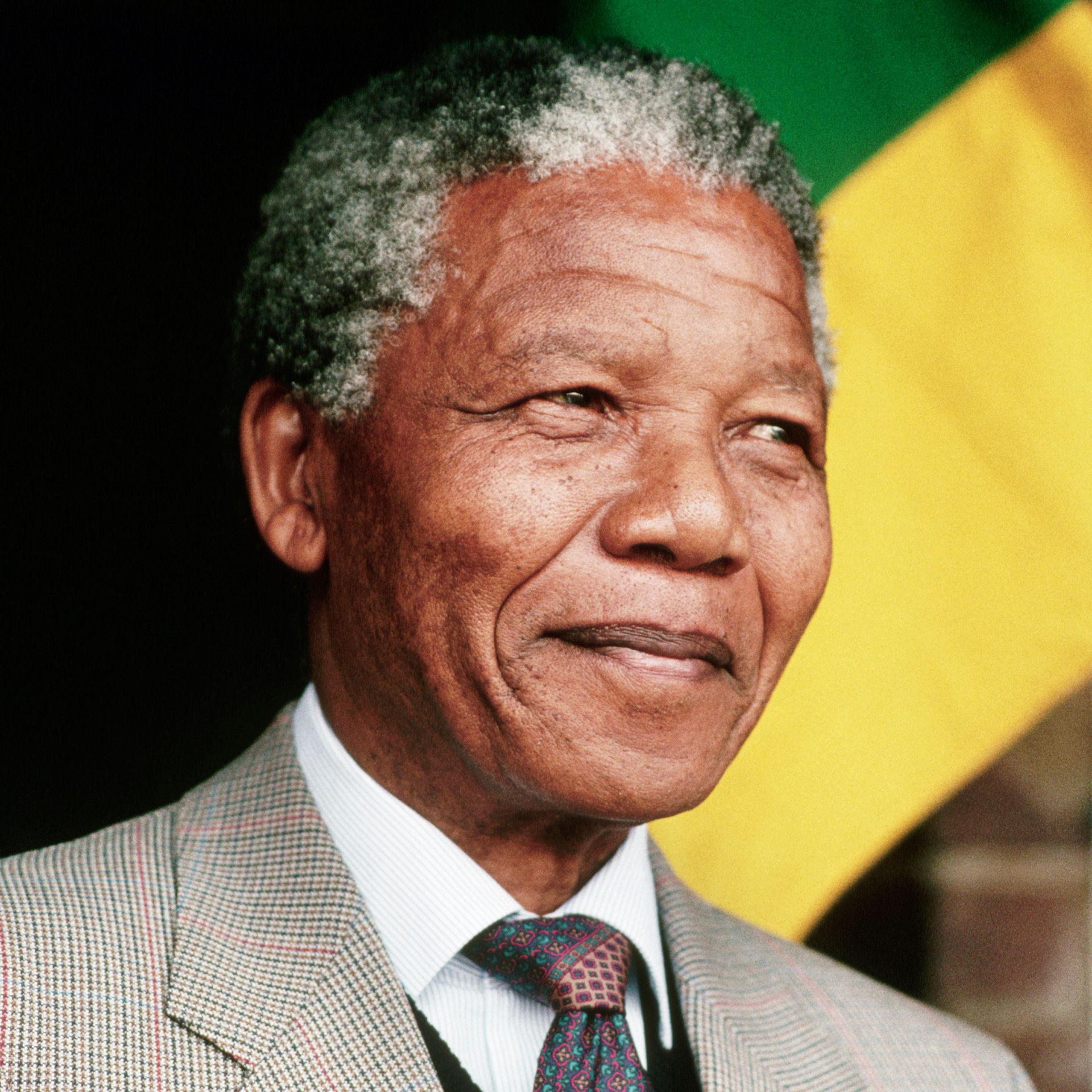Biography Of Nelson Mandela
Rolihlahla Mandela was born on 18 July 1918 into the Madiba clan in Mvezo, Transkei. His mother was Nonqaphi Nosekeni, and his father, Nkosi Mphakanyiswa Gadla Mandela, served as the chief advisor to the Acting King of the Thembu people, Jongintaba Dalindyebo.
Mandela was given the name "Nelson" by his teacher, Miss Mdingane, on his first day of primary school. When he was 12 years old, his father passed away, and he was subsequently raised by the Regent at the Great Place in Mqhekezweni. He attended top schools and began studying for a BA at Fort Hare University.
After being expelled for participating in a student protest, the Regent advised him to either return home or get married. Mandela chose to run away to Johannesburg with his cousin, Justice. In 1941, he started working as a security guard at a gold mine and later as a legal clerk at the law firm Witkin, Edelman, and Sidelsky, while completing his BA through Unisa.
In 1943, Mandela enrolled in an LLB program at Wits University. As a student struggling financially, he became increasingly involved in politics, particularly after helping to establish the ANC Youth League in 1944. He married in the same year and needed financial support for his growing family.
By mid-1952, when the university demanded payment of the 27 pounds he owed or his departure, Mandela was already the father of three children. He resumed his studies in prison in 1962, eventually completing his LLB through Unisa 27 years later.
In 1952, Mandela became the National Volunteer-in-Chief of the Defiance Campaign against apartheid laws. He and 19 others were charged and sentenced to nine months, suspended for two years. That August, Mandela and Oliver Tambo founded South Africa’s first black law firm, Mandela & Tambo.
In those days, a two-year diploma was sufficient to practice as an attorney. Mandela was banned for the first time later that year, requiring government permission to leave Johannesburg. After the Freedom Charter was adopted in 1955, 156 people were arrested and charged with treason. The trial, which lasted four-and-a-half years, ended on 29 March 1961 with all defendants acquitted. Following the police killing of 69 unarmed protesters in Sharpeville on 21 March 1961, the ANC and PAC were banned.
Mandela urged the government not to declare South Africa a republic on 31 May 1961, but rather to negotiate a non-racial constitution. His call was ignored, leading him to call for a strike on 29, 30, and 31 March. In June 1961, he was asked to lead the ANC’s armed wing, Umkhonto weSizwe, which launched on 16 December that year. Mandela secretly left South Africa on 11 January 1962 for military training and to seek support for the armed struggle from African countries.
He was arrested on 5 August 1962, charged with leaving the country illegally and inciting the strike. On 7 November 1962, he was sentenced to five years in prison. On 11 July 1963, police raided a secret hideout he had used, and on 9 October 1963, he began trial for sabotage in the Rivonia Trial.
On 12 June 1964, Mandela and seven others were sentenced to life imprisonment. During his imprisonment, both his mother and eldest son died, and he was not allowed to attend their funerals.
Mandela spent 18 years on Robben Island and was later moved to Pollsmoor Prison in Cape Town in 1985. During a hospital visit, Justice Minister Kobie Coetsee proposed the idea of opening discussions with the ANC. In 1988, Mandela was hospitalized for tuberculosis and was moved to Victor Verster Prison three months later, where he spent his final 14 months in custody. He was released on 11 February 1990, nine days after the ANC and PAC were unbanned.
Following his release, other political prisoners were freed, and exiles returned. The ANC began negotiations with the government about South Africa’s future. Mandela and President FW de Klerk were awarded the Nobel Peace Prize in 1993 for their efforts. On 27 April 1994, Mandela cast his vote in South Africa’s first democratic elections. He was inaugurated as South Africa’s first democratically elected President on 10 May 1994 and served one term before stepping down. In retirement, he focused on building schools and clinics, and raising awareness about HIV, children, and leadership. Nelson Mandela passed away at his home in Johannesburg on 5 December 2013.




0 Comments